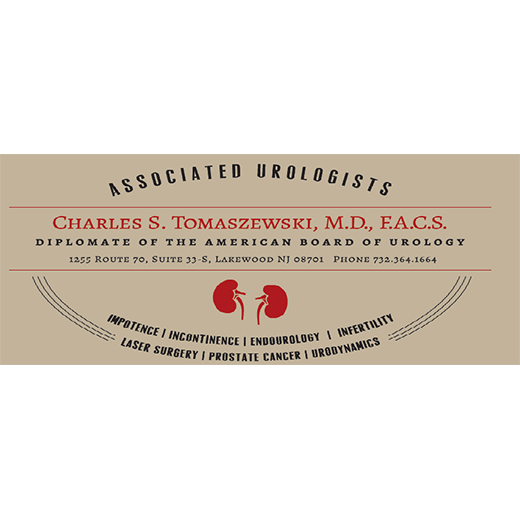
Associated Urologists LLC
(on highway ste 33s)Doctors in Lakewood, NJ

Associated Urologist is based in Lakewood, New Jersey. Dr. Charles Tomaszewski of Associated Urologist is an experienced board certified urologist who cares about your urological concern and will offer the latest advances in treatment. Associated Urologist is providing this multi-page website so that you can learn more about us and about urology. Practicing in Phoenix, Arizona since 1993, Dr. Tomaszewski moved his office to Lakewood, New Jersey in 2006. His main focus is on the care of male impotency, male infertility and prostate cancer, as well as female urinary incontinence. He is one of a few urologist who performs the perineal prostatectomy for prostate cancer, and is a local leader in the treatment of prostatic enlargement, using an office based thermo therapy device.
